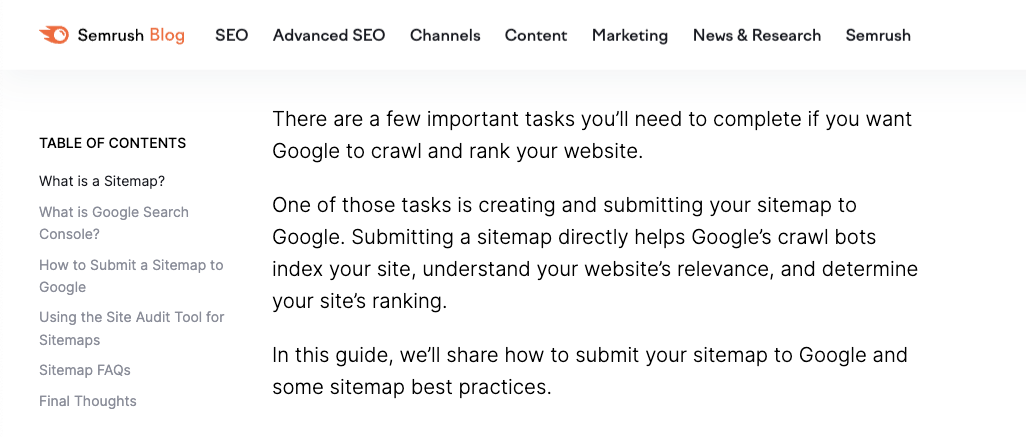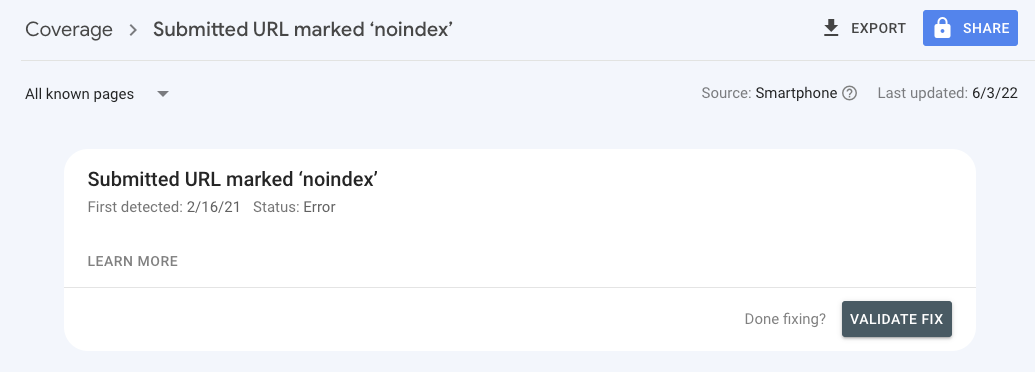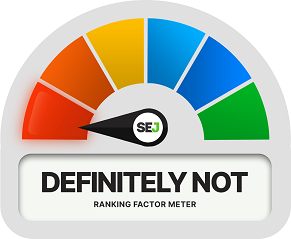Search Console is a free Google tool that helps you monitor and fix problems with your site’s performance in Google search results.
You can get a lot of helpful information from Google Search Console to guide your SEO efforts. But is it a ranking factor?
Let’s dig in.
The Claim: Google Search Console As A Ranking Factor
While the tool doesn’t give us access to every detail about what is going on behind the scenes, it certainly shares a great deal of information on how to help Google crawl and index our pages better.
In addition, the performance reports show you what queries your website displays, your average search positions for those queries, and how many people clicked through to the website from Google Search.
Using Google Search Console certainly gives us marketers an upper hand. But is it the tool influencing ranking or the insights that sharpen your edge?
Download: The Complete Guide To Google Ranking Factors
The Evidence: Is Google Search Console A Ranking Factor?
Google hasn’t explicitly addressed whether or not Search Console is a ranking factor, so we will take a look at a few features that may seem, at first glance, to be a factor.
Adding A Website To Google Search Results
Respected SEO sites tell site owners to sign up for Google Search Console and submit a sitemap to Google.

That can make Google Search Console itself seem like a required step to ranking on Google.
But you don’t actually have to submit your sitemap to be included in Google search results.
Google automatically looks for sites; you don’t need to do anything special. Just publish your website, and Google will (eventually) find it. Submitting your sitemap is a best practice, but it’s not required.
Fix Indexing Problems And Request Reindexing
Occasionally, websites or web pages are missed by Googlebot, and this may occur because of an indexing problem.
Within Search Console, you can view coverage reports, which tell you if the search engine can find all the pages on your website.
Pages are grouped based on whether they can be found and how they were indexed.
The report explains why some pages may not be found or indexed.
Once you’ve fixed an indexation or crawling issue on your website, you can let Google know that it’s been fixed within Google Search Console.
 Screenshot from Google Search Console, June 2022
Screenshot from Google Search Console, June 2022
While getting your web pages crawled and indexed is required to appear in search results, it’s a separate step from ranking.
That said, getting your site or pages indexed is step one. If you’re having trouble indexing your pages, try this advice from Google’s John Mueller.
[Discover:] More Google Ranking Factor Insights
Improve Performance Metrics
Once a site has been crawled and indexed, it can “compete” in search results.
Google Search Console doesn’t give us the ranking factors’ details but shows how many people saw and clicked on your site, what queries your site displayed for, and your average search position.
By exploring website clicks, impressions, and average positions, you can gather the data you need to improve your SEO efforts.
Dig into which pieces of content are performing well and discover quick wins to boost your performance in Google search.
Performance metrics are not directly weighted in ranking; they’re more like a measurement of the outcome of your performance in Google search.
Our Verdict: Google Search Console Is Not A Ranking Factor


No, Google Search Console is not a ranking factor.
You don’t have to sign up for Google Search Console to be included in Google search results.
However, using Google Search Console is wise because it helps you understand your site performance and identify issues.
Featured Image: Paulo Bobita/Search Engine Journal
window.addEventListener( ‘load’, function() {
setTimeout(function(){ striggerEvent( ‘load2’ ); }, 2000);
});
window.addEventListener( ‘load2’, function() {
if( sopp != ‘yes’ && addtl_consent != ‘1~’ && !ss_u ){
!function(f,b,e,v,n,t,s)
{if(f.fbq)return;n=f.fbq=function(){n.callMethod?
n.callMethod.apply(n,arguments):n.queue.push(arguments)};
if(!f._fbq)f._fbq=n;n.push=n;n.loaded=!0;n.version=’2.0′;
n.queue=[];t=b.createElement(e);t.async=!0;
t.src=v;s=b.getElementsByTagName(e)[0];
s.parentNode.insertBefore(t,s)}(window,document,’script’,
‘https://connect.facebook.net/en_US/fbevents.js’);
if( typeof sopp !== “undefined” && sopp === ‘yes’ ){
fbq(‘dataProcessingOptions’, [‘LDU’], 1, 1000);
}else{
fbq(‘dataProcessingOptions’, []);
}
fbq(‘init’, ‘1321385257908563’);
fbq(‘track’, ‘PageView’);
fbq(‘trackSingle’, ‘1321385257908563’, ‘ViewContent’, {
content_name: ‘google-search-console-ranking-factor’,
content_category: ‘seo’
});
}
});
Source
[sibwp_form id=1]

![Is It A Ranking Factor? 7 Ranking Factors: Fact Or Fiction? Let’s Bust Some Myths! [Ebook]](https://cdn.searchenginejournal.com/wp-content/uploads/2022/08/rf-ebook-download-banner-62e8c6126ffe8-sej.jpg)

